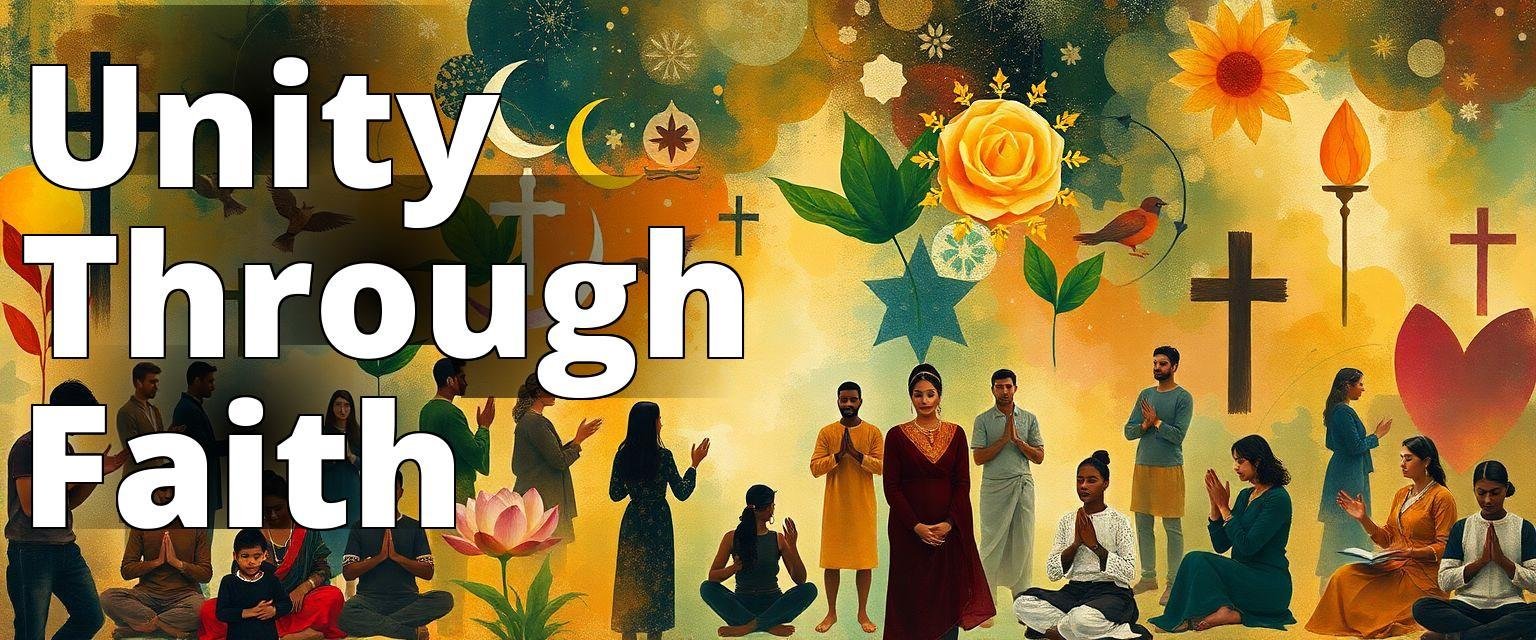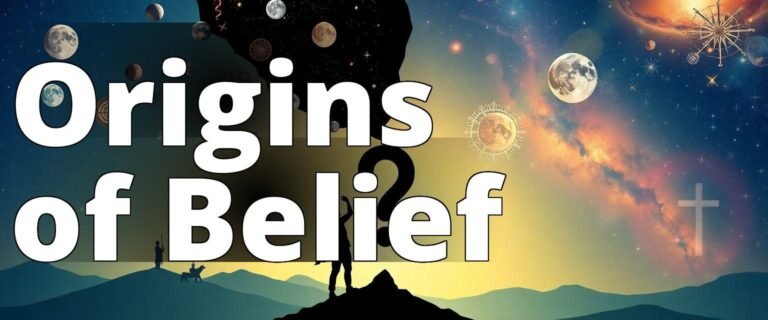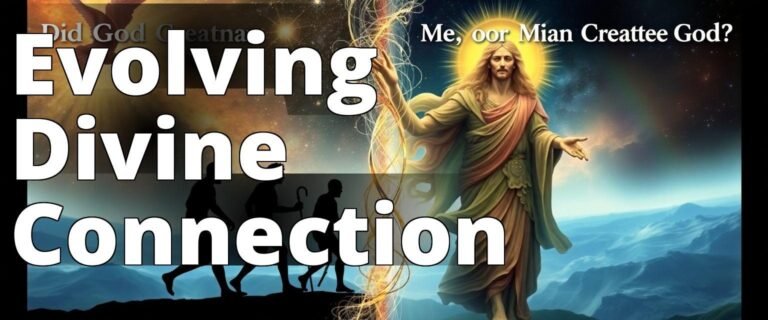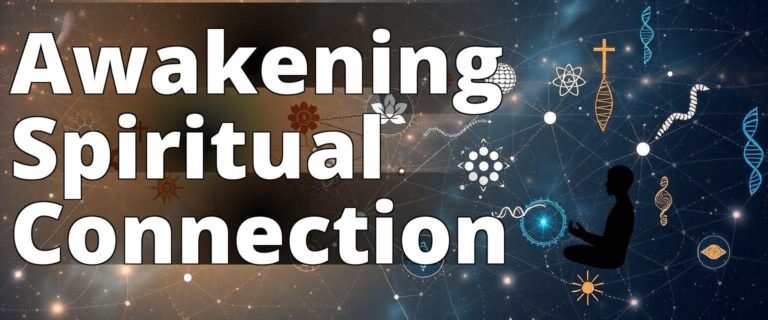What is religion?
Religion, in its myriad forms, is an intricate tapestry that has woven itself into the very fabric of human society. It is more than just a belief in a higher power; it is a complex social institution that governs much of human behavior, interaction, and even conflict. My stance is clear: religion is indispensable to understanding society, and its study is crucial to grasp the intricacies of human interaction. Let’s dissect the sociological definition of religion and explore its multifaceted roles and purposes.
What is Religion?
Religion is a deeply ingrained cultural system that encompasses belief, practice, moral codes, and worldviews. It binds individuals to a community through shared rituals, stories, and symbols that articulate the nature of existence and the cosmos. But beyond the spiritual, religion is a potent social force. When I first visited a bustling church service in my hometown, what struck me was not just the solemnity of worship but the profound social engagement it fostered. People connected, shared their lives, and supported each other unconditionally. This social dimension is what elevates religion to a societal cornerstone.
In sociological terms, religion is a social institution that provides a framework for understanding the world and our place within it. It offers explanations for the unknown, instills moral values, and often dictates societal norms. Religion has historically functioned as a means of social cohesion, bringing people together under a shared system of beliefs and practices. But it is not static; it evolves with societal changes, reflecting and sometimes resisting the transformations of the cultures it inhabits.
The Sociological Definition of Religion
From a sociological perspective, religion is defined as a unified system of beliefs and practices relative to sacred things, which unite into a single moral community called a Church, all those who adhere to them. Emile Durkheim, one of the founding figures of sociology, emphasized religion’s role in maintaining social cohesion and moral order. He argued that religion embodies the collective consciousness of society, representing the shared values and norms that bind communities together.
The sociological definition of religion extends beyond personal spirituality to encompass the societal dimensions of religious practice. It’s about understanding how religion affects social structures and vice versa. For instance, the rise of megachurches in the United States is not just a religious phenomenon; it’s a reflection of broader social trends toward consumerism and individualism. This sociological lens allows us to see religion not just as a personal journey but as a collective enterprise that shapes and is shaped by the societies in which it is practiced.
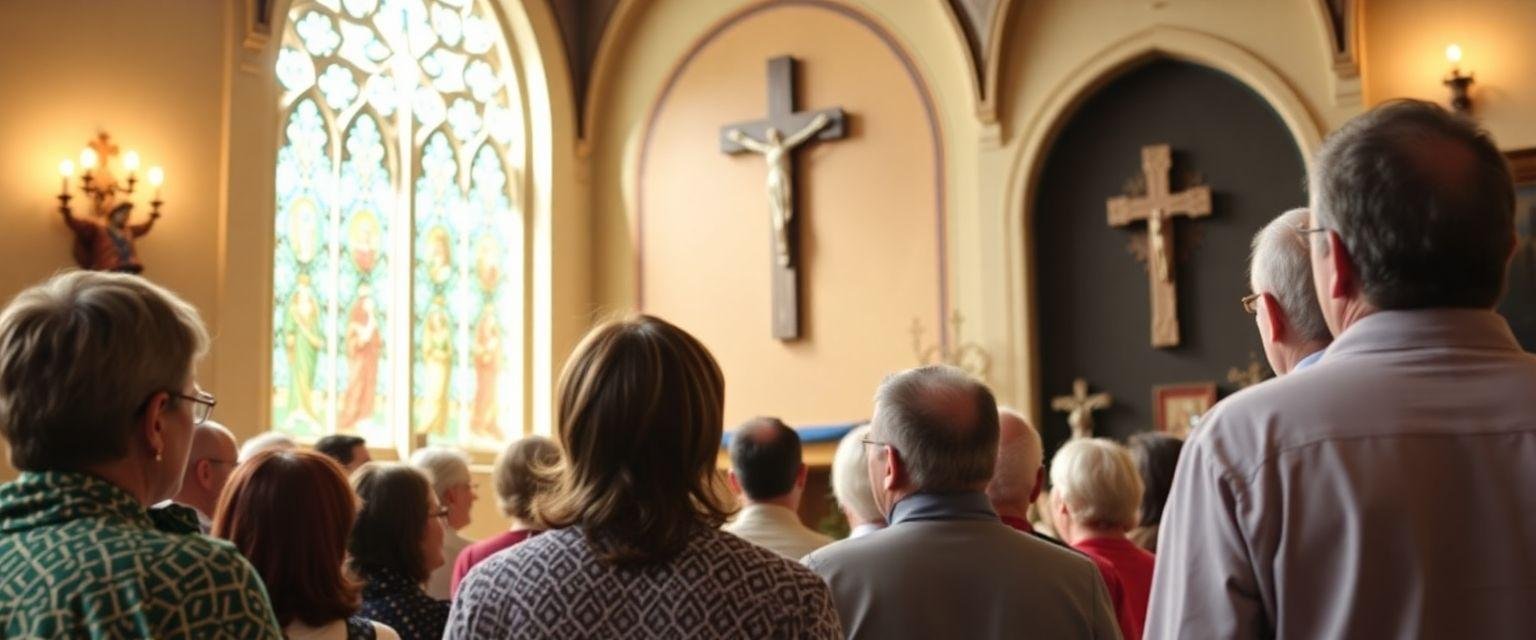
The Key Features of Religion
Religion, in its essence, is characterized by several key features that distinguish it from other social institutions:
- Beliefs and Practices: At its core, religion involves a set of beliefs about the supernatural and sacred, which are expressed through various practices and rituals. These beliefs often provide explanations for life’s mysteries and the cosmos.
- Sacredness: Religion designates certain objects, places, and times as sacred, setting them apart from the mundane. This sacred-profane dichotomy is fundamental to religious experience and practice.
- Moral Codes: Most religions possess a set of ethical guidelines that dictate what is considered right and wrong, influencing followers’ behavior and societal norms.
- Community: Religion fosters a sense of belonging and community among its adherents, often providing a support network and a sense of identity.
- Institutionalization: Over time, religious beliefs and practices often become institutionalized, forming organized structures such as churches, synagogues, and mosques, which play significant roles in societal governance and cultural continuity.
The interplay of these features makes religion a dynamic and multifaceted social institution that impacts every aspect of life, from the personal to the political.
The Functions of Religion
Religion serves several vital functions in society, acting as a stabilizing force and a source of meaning in a complex world. One of the primary functions of religion is to provide a framework for understanding the universe and our place within it. It offers answers to existential questions about life, death, and the afterlife, providing comfort and meaning to adherents.
Moreover, religion plays a crucial role in social cohesion, bringing individuals together under a shared set of beliefs and practices. This communal aspect of religion fosters a sense of belonging and solidarity, creating a moral community that supports its members through life’s challenges. In this way, religion acts as a social glue, binding people together and maintaining social order.
Religion also serves as a source of social control, reinforcing societal norms and values through moral codes and ethical teachings. By providing a set of guidelines for behavior, religion helps regulate individual conduct and maintain social order. Additionally, religion can act as a catalyst for social change, inspiring movements for social justice and reform. Throughout history, religious leaders and movements have played pivotal roles in advocating for change and challenging the status quo.
The Role of Religion in Society
The role of religion in society is multifaceted, influencing various aspects of social life. At its core, religion provides a sense of purpose and meaning, guiding individuals in their daily lives and helping them navigate moral dilemmas. It offers a moral framework that shapes individual behavior and societal norms, influencing everything from laws and customs to social interactions and institutions.
Furthermore, religion acts as a powerful force for social cohesion, bringing people together under a shared set of beliefs and practices. It fosters a sense of belonging and community, providing individuals with a support network and a sense of identity. In this way, religion can serve as a unifying force, bridging cultural and ethnic divides and promoting social harmony.
However, religion can also be a source of conflict and division, particularly when different religious groups compete for power and influence. It can exacerbate social tensions and exacerbate divisions, leading to conflict and violence. This dual role of religion as both a unifying and divisive force highlights its complex and multifaceted nature.
Religion and Social Change
Religion has historically been a catalyst for social change, inspiring movements for social justice and reform. From the abolition of slavery to the civil rights movement, religious leaders and movements have played critical roles in challenging the status quo and advocating for change. Religion can serve as a powerful force for social transformation, providing a moral framework for activism and inspiring individuals to take action.
However, religion can also resist social change, particularly when it threatens established norms and traditions. Religious institutions and leaders may resist efforts to reform or challenge existing power structures, particularly when they perceive these changes as a threat to their authority or influence. This tension between religion and social change highlights the complex relationship between religious beliefs and societal transformation.
Religion and Social Order
Religion plays a critical role in maintaining social order, providing a moral framework that regulates individual conduct and reinforces societal norms. By offering a set of guidelines for behavior, religion helps promote social cohesion and stability, ensuring that individuals adhere to established rules and customs.
However, religion can also challenge social order, particularly when it conflicts with existing power structures or societal norms. Religious movements and leaders may advocate for change and reform, challenging established authorities and advocating for justice and equality. This tension between religion and social order highlights the complex and dynamic nature of religious beliefs and their impact on society.
Religion and Social Identity
Religion plays a significant role in shaping social identity, providing individuals with a sense of belonging and community. It offers a framework for understanding the world and one’s place within it, helping individuals navigate moral dilemmas and make sense of their experiences.
However, religion can also be a source of division and conflict, particularly when different religious groups compete for power and influence. It can exacerbate social tensions and exacerbate divisions, leading to conflict and violence. This dual role of religion as both a unifying and divisive force highlights its complex and multifaceted nature.
Religion and Social Divisions
Religion can be a source of both unity and division, bringing people together under a shared set of beliefs and practices while also exacerbating social tensions and divisions. In some cases, religious differences can lead to conflict and violence, particularly when different groups compete for power and influence.
However, religion can also serve as a unifying force, promoting social harmony and bridging cultural and ethnic divides. By fostering a sense of belonging and community, religion can help promote social cohesion and stability, ensuring that individuals adhere to established norms and customs.
Religion and Social Class
Religion often intersects with social class, influencing individuals’ beliefs and practices and shaping their experiences and opportunities. In some cases, religious institutions and leaders may align with established power structures, reinforcing existing social hierarchies and perpetuating inequality.
However, religion can also challenge social class divisions, particularly when it advocates for justice and equality. Religious movements and leaders may advocate for change and reform, challenging established authorities and advocating for social justice and equality.
Religion and Gender
Religion plays a significant role in shaping gender roles and expectations, influencing individuals’ beliefs and practices and shaping their experiences and opportunities. In some cases, religious institutions and leaders may reinforce traditional gender roles and perpetuate inequality.
However, religion can also challenge gender norms and advocate for equality and social justice. Religious movements and leaders may advocate for change and reform, challenging established authorities and advocating for gender equality and social justice.
Religion and Ethnicity
Religion often intersects with ethnicity, influencing individuals’ beliefs and practices and shaping their experiences and opportunities. In some cases, religious institutions and leaders may align with established power structures, reinforcing existing social hierarchies and perpetuating inequality.
However, religion can also challenge ethnic divisions and promote social harmony. By fostering a sense of belonging and community, religion can help promote social cohesion and stability, ensuring that individuals adhere to established norms and customs.
Secularisation
Secularisation refers to the process by which religion loses its influence over various spheres of social life, including politics, education, and culture. This process is often associated with modernization and the rise of scientific rationalism, which challenges traditional religious beliefs and practices.
However, secularisation is not a straightforward process, and its impact on religion and society is complex and multifaceted. In some cases, secularisation may lead to a decline in religious adherence and influence, while in others, it may lead to the rise of new religious movements and practices.
Belief Without Belonging
Belief without belonging refers to the phenomenon where individuals maintain religious beliefs and practices without actively participating in organized religious institutions. This trend is often associated with secularisation and the rise of individualism, which emphasizes personal spirituality over communal religious practice.
However, belief without belonging is not a straightforward process, and its impact on religion and society is complex and multifaceted. In some cases, it may lead to a decline in religious adherence and influence, while in others, it may lead to the rise of new religious movements and practices.
Personal Story: Discovering Belief Beyond Belonging
Growing up in a small town in Michigan, I was surrounded by a tight-knit community where everyone seemed to attend church every Sunday. My parents, however, were not particularly religious; they believed in the values of kindness and community without adhering to formal practices. As a teenager, I felt the pressure to conform and often questioned my own beliefs.
When I turned 18, I decided to explore different faiths and spiritual practices. I attended various religious services, from Buddhist meditation sessions to Hindu festivals, and even participated in a Quaker meeting. Each experience opened my eyes to the diversity of beliefs and practices around me.
One evening, I found myself at a local interfaith dialogue group. It was there that I met Sarah, a young woman who had grown up in a fundamentalist Christian household but had distanced herself from organized religion. She shared her journey of finding spirituality in nature and her commitment to social justice, which resonated deeply with my own values.
Through conversations with Sarah and others in the group, I understood that belief could exist outside the confines of formal religious institutions. I realized that my spiritual identity didn’t have to align with a specific church or doctrine; instead, it could be a blend of experiences and values that I held dear. This realization helped me embrace my own belief system, which fostered a sense of belonging to a broader human experience rather than just a particular religious group.
This experience highlights the concept of “belief without belonging.” It illustrates how individuals can find spiritual fulfillment and identity outside traditional religious structures, yet still connect meaningfully with others who share similar values and aspirations.
Spirituality
Spirituality refers to a broader and more individualized approach to religious belief and practice, emphasizing personal experiences and connections with the divine. It often involves a search for meaning and purpose, transcending traditional religious boundaries and institutions.

However, spirituality is not a straightforward process, and its impact on religion and society is complex and multifaceted. In some cases, it may lead to a decline in religious adherence and influence, while in others, it may lead to the rise of new religious movements and practices.
Thought Provoking Questions:
- How has your personal experience with religion shaped your understanding of its role in society?
- In what ways do you think religion can both unite and divide communities?
- How do you perceive the relationship between religion and social change in today’s world?
This exploration of the sociological definition of religion highlights its complex and multifaceted role in society. From providing a moral framework and social cohesion to challenging established norms and advocating for change, religion is a dynamic and evolving social institution that continues to shape human experience and interaction.
For more insights into the intricate web of social institutions and their impact, you can explore our sitemap.
The author holds a Ph.D. in Sociology from Harvard University, where they focused on the intricate relationship between religion and social dynamics. With over a decade of teaching experience at various universities, including Stanford and the University of Chicago, they have published extensively on topics related to the sociological definitions and functions of religion. Their research has been featured in prestigious journals such as the “Journal for the Scientific Study of Religion” and “Sociology of Religion.” A notable study, Religion and Social Change: An Empirical Analysis published in 2020, received accolades for its depth and insight, shedding light on how religious institutions adapt within changing societal contexts. The author also serves as a consultant for various non-profit organizations that aim to understand and address the role of faith in community building. Their passion for exploring spirituality beyond traditional frameworks is evident in their engagement with diverse cultural perspectives and lived experiences.

